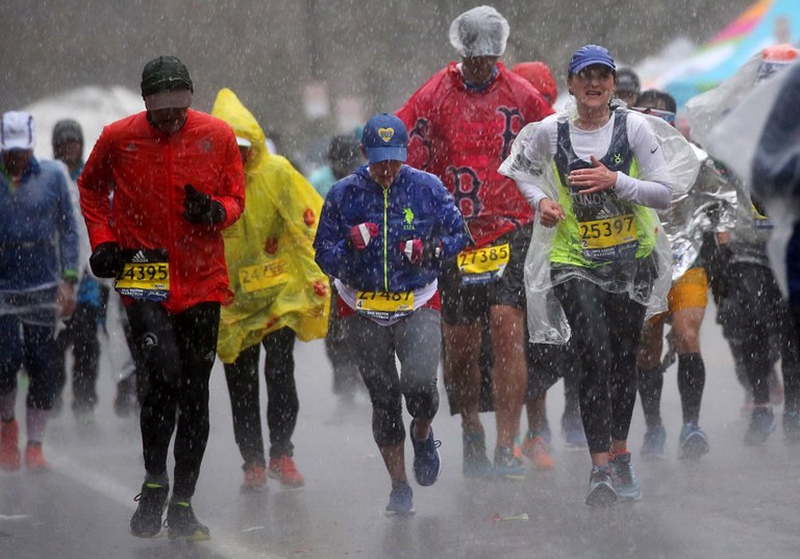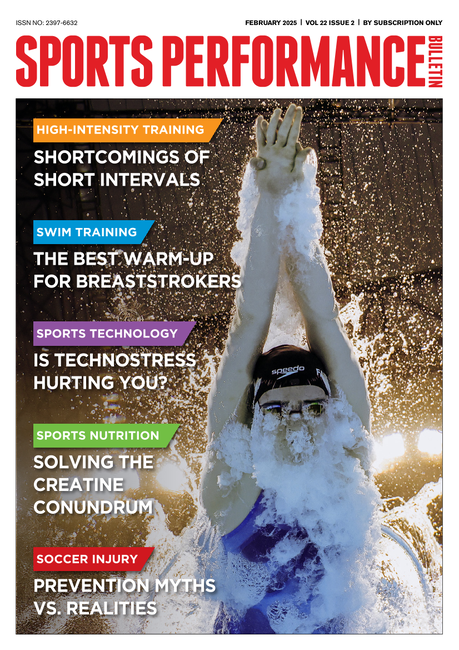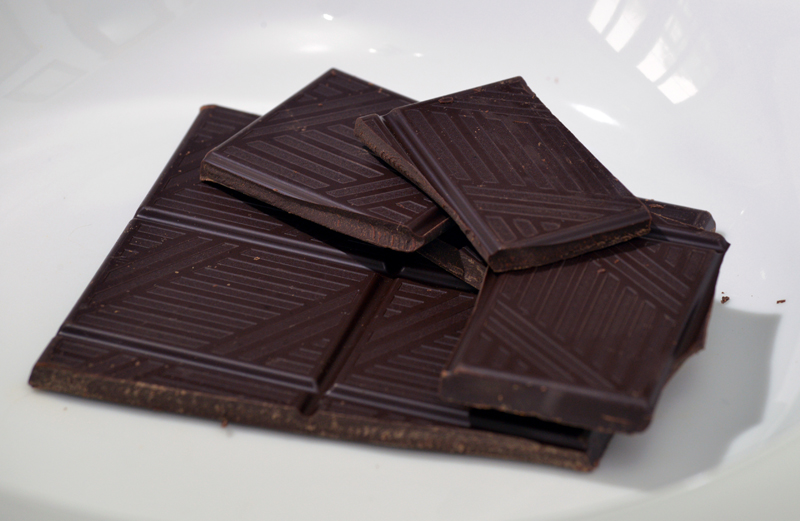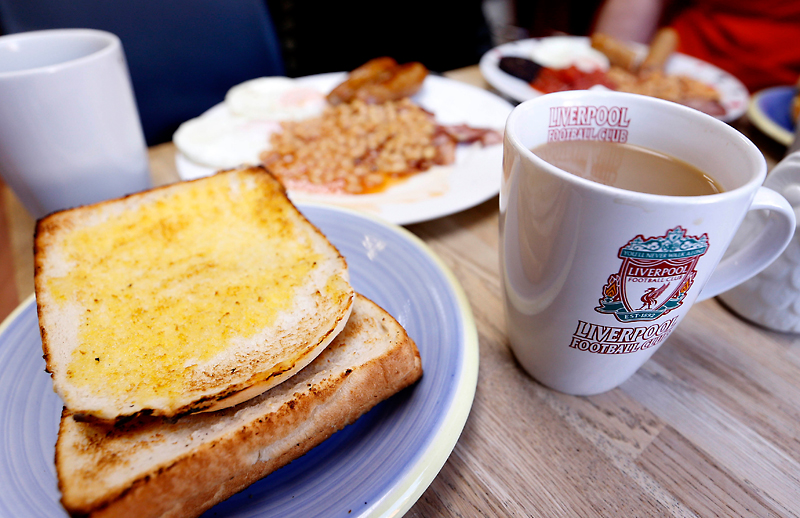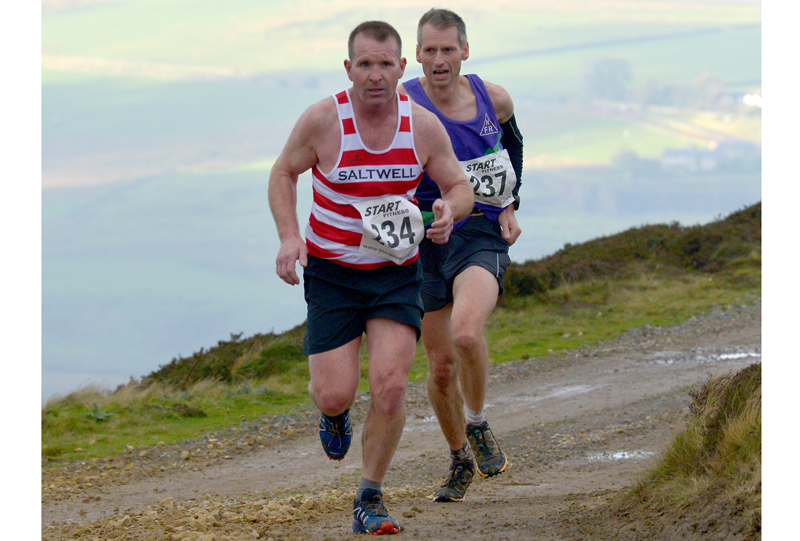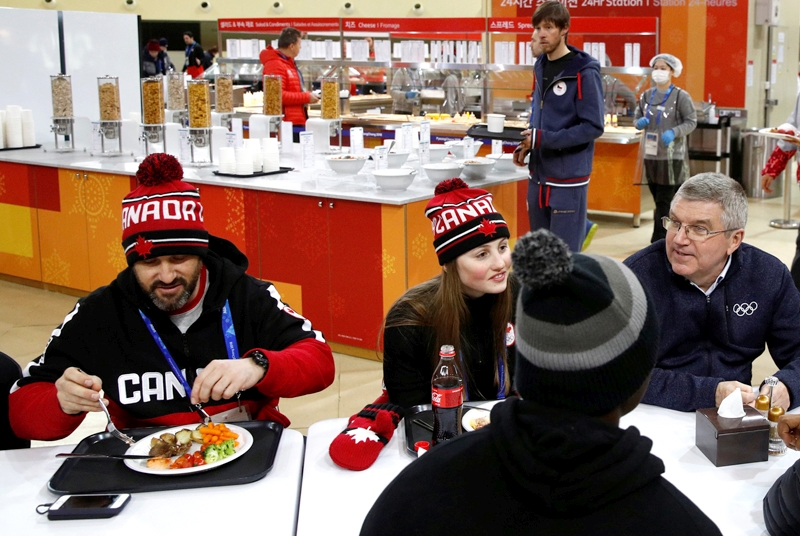You are viewing 1 of your 1 free articles. For unlimited access take a risk-free trial
Can probiotics protect post-marathon immunity?

Sports Performance Bulletin looks at brand new research on probiotic supplementation and post-exercise immunity following marathon running
Over the last few years, a growing number of studies have revealed a close interaction between microbe environment in the gut (gut microbiota) and immune function (see this article for an-depth discussion on this topic, and in particular, the link between athlete health in the winter months and probiotic supplementation). The human gut is not a sterile environment; it contains a microbiota composed of billions of different species of bacteria, some with pathogenic (harmful) and some with symbiotic (helpful) characteristics – the overall effect of which depends on the balance of organisms and the biochemical environment within the gut.Bugs and immunity
What has emerged from recent research is that the gut microbiota performs many immune cell regulatory functions, and thus plays an important role in immune cell development and function in the body(1-3). Because of this, the field of probiotic supplementation (the supplementation of symbiotic bacteria) has arisen as a strategy to treat metabolic, autoimmune and inflammatory diseases. The probiotic bacteria used in these supplements are classified as ‘commensal’ bacteria, which live in a symbiotic manner in the gut. By competing for nutrients with pathogenic bacteria, these probiotic bacteria prevent the colonization of the gut by pathogenic bacteria.However, probiotics also have an immune-stimulatory effect. For example, research shows that milk enriched with probiotic Bifidobacterium lactis significantly increases the number of powerful immune cells such as neutrophils and CD4 and CD8 T lymphocytes(4). In addition, 11 weeks of Lactobacillus fermentum supplementation has been shown to prevent upper respiratory tract infections (URTI) in endurance athletes(5).
Post-exercise immunity
It’s long been understood that high-intensity and high-volume exercise such as a marathon running has been associated with immunosuppression after exercise by decreasing immune cell function (read more about post-exercise immunity in this article). This post-exercise dip in immunity enhances the athlete’s susceptibility to infection, particularly viral infections(6,7). If probiotic supplementation can enhance immune function, a question that arises is can probiotic supplementation help prevent the post-exercise dip in immunity following prolonged or strenuous exercise?Some new research by a team of Brazilian scientists has tried to answer this by administering 30 days of probiotic supplementation and seeing whether it could stabilize the immune system of athletes - thus preventing immune suppression after a marathon race(8). Twenty-seven male marathoners were randomly divided into two groups:
- Probiotic supplementation (Bifidobacterium-animalis-subsp.-Lactis and Lactobacillus-Acidophilus + 5 grams of maltodextrin
- Placebo (just 5 grams of maltodextrin)
Figure 1: Experimental design

What they found
The key findings were as follows:- In both the probiotic and placebo-supplemented runners, CD3, CD4 and CD8+−T-cells increased pre-race (higher immunity due to a rested state), decreased post and returned to rest values at the recovery stage five days post race.
- The levels of pro-inflammatory cytokine production decreased in the probiotic group (indicating a better functioning immune system) after the supplementation period but NOT in the placebo group.
- The total number of CD8+ T-cells decreased in the placebo group post-race (indicating immune suppression) but NOT in the probiotic group.
Implications for athletes
The researchers concluded that 30 days of the probiotic strain supplementation was able to maintain the total number of CD8+ T cells and boost the number of associated memory T cells (conferring longer-term immunity), which indicated the probiotics had benefited the athletes’ immune systems. It’s true that there was no statistical difference in recorded upper respiratory tract infections between the two groups; however, the researchers pointed out that a) the period of supplementation (30 days) was relatively short compared to the timescales for probiotic benefits normally observed and b) the athletes were tapering in the run up to the race so were not experiencing their normal training loads.This study is important as it shows that a period of probiotic supplementation before an unusually long or intense event can help reduce the normally observed post-exercise dip in immunity. More generally, it adds to the evidence that probiotic supplementation can provide athletes with additional health and performance benefits. Meanwhile, here is some practical advice for athletes considering the use of probiotic supplementation:
- If you use probiotics, stick to bacteria strains that have proven to be effective in studies such as Bifidobacterium-animalis-subsp.-Lactis and Lactobacillus-Acidophilus (as above), Lactobacillus fermentum and Lactobacillus casei.
- Probiotics in liquid form are more likely to be effective than dried forms such as capsules.
- Take any probiotic on an empty tummy and at least 15 minutes before food. A good time is soon after rising in the morning, but before breakfast.
- Bear in mind that beneficial changes in gut flora from probiotic take time to accrue, which means that probiotics are not a ‘quick fix’ for boosting immunity.
- Probiotics are definitely recommended following a course of antibiotic treatment.
- Cell. Microbiol. 2016;18:652–662
- Cell. 2014;157:121–141
- Integr. Med. Encinitas Calif. 2014;13:17–22
- Br. J. Sports Med. 2010;44:222–226
- Gut Microbes. 2012;3:221–227
- Brain. Behav. Immun. 2009;22:590–599
- Brain. Behav. Immun. 2009;23:232–239
- Sci Rep . 2020 Nov 2;10(1):18777.
Newsletter Sign Up
Testimonials
Dr. Alexandra Fandetti-Robin, Back & Body Chiropractic
Elspeth Cowell MSCh DpodM SRCh HCPC reg
William Hunter, Nuffield Health
Newsletter Sign Up
Coaches Testimonials
Dr. Alexandra Fandetti-Robin, Back & Body Chiropractic
Elspeth Cowell MSCh DpodM SRCh HCPC reg
William Hunter, Nuffield Health
Keep up with latest sports science research and apply it to maximize performance
Today you have the chance to join a group of athletes, and sports coaches/trainers who all have something special in common...
They use the latest research to improve performance for themselves and their clients - both athletes and sports teams - with help from global specialists in the fields of sports science, sports medicine and sports psychology.
They do this by reading Sports Performance Bulletin, an easy-to-digest but serious-minded journal dedicated to high performance sports. SPB offers a wealth of information and insight into the latest research, in an easily-accessible and understood format, along with a wealth of practical recommendations.
*includes 3 coaching manuals
Get Inspired
All the latest techniques and approaches
Sports Performance Bulletin helps dedicated endurance athletes improve their performance. Sense-checking the latest sports science research, and sourcing evidence and case studies to support findings, Sports Performance Bulletin turns proven insights into easily digestible practical advice. Supporting athletes, coaches and professionals who wish to ensure their guidance and programmes are kept right up to date and based on credible science.
